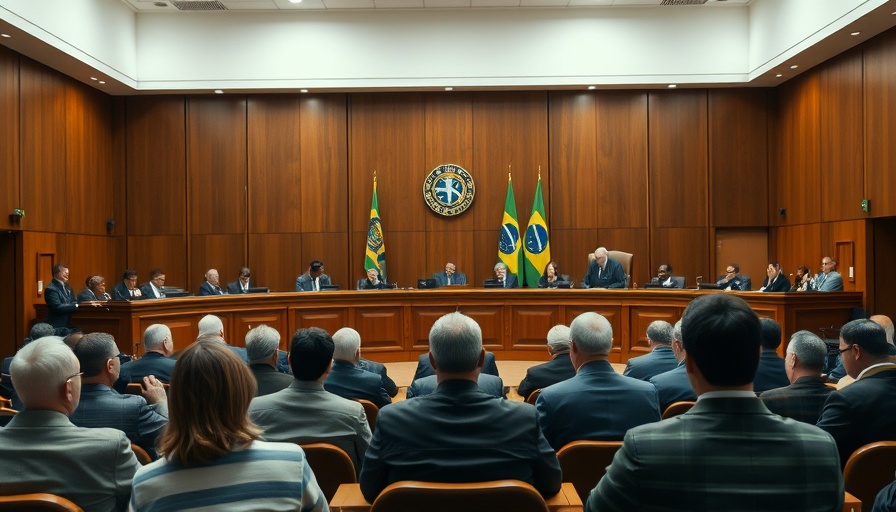
Bolsonaro's Coup Trial: The Beginning of a Reckoning for Democracy
Brazil is currently at a critical juncture, with significant ramifications for its democracy as former President Jair Bolsonaro's trial enters its decisive phase. Prosecutor-General Paulo Gonet has boldly claimed that Bolsonaro and his allies orchestrated a plan to illegally retain power after losing the 2022 election to current President Luiz Inácio Lula da Silva. This assertion has sparked widespread interest not only in Brazil but across the globe, as nations reflect on the robustness of their democratic systems.
Understanding the Charges Against Bolsonaro
The main charge is that Bolsonaro attempted to stage a coup. Following the October 2022 elections, Bolsonaro allegedly called high-ranking military and Cabinet officials to devise a strategy that included suspending the electoral court's powers to contest the election results. Gonet noted that it would not take “extraordinary intellectual effort” to recognize the seriousness of such actions.
The Context of Political Tension
The allegations don't stand alone; they are part of an intricate narrative of political tension in Brazil. Just days after Lula’s inauguration, a riot led by Bolsonaro supporters shook the nation. These events reflect broader regional and global trends where democratic processes are questioned and challenged, raising concerns about the stability of governance and civil liberties.
Echoes of January 2023: When Democracy Was Tested
On January 8, 2023, streets filled with Bolsonaro supporters echoing their discontent became a stark reminder of the fragile state of democracy in Brazil. This insurrection signifies a moment when many nations observed how easily public order can slip away when democratic values are undermined. The attempts to challenge Brazil's electoral integrity spotlight troubling patterns seen in various democracies worldwide, as dissent and extremist ideologies become potent forces.
The Importance of Holding Leaders Accountable
Gonet’s assertion that failing to penalize such actions might embolden authoritarian behavior holds crucial implications for democracies. The echoes of history remind us that accountability is necessary to secure public trust and uphold the democratic fabric. As Brazil navigates this trial, it serves as a pivotal moment not only for Brazilian citizens but also as a lesson for countries struggling with similar threats to democratic integrity.
The Future of Brazilian Democracy: Hope or Despair?
The unfolding trial prompts critical questions about the future of Brazilian democracy. Will holding Bolsonaro accountable inspire a renewed commitment to democratic values, or will it deepen divisions within society? As deliberations continue through September 12, outcomes will not only shape Brazil’s political landscape but will also resonate with nations grappling with democratic challenges.
As citizens await the verdict, there's an opportunity to reflect on the value of political engagement and the importance of maintaining democratic ideals. It’s a moment for civil society to unite in advocating for a future free from fear of authoritarian rule.
 Add Row
Add Row  Add
Add 




Write A Comment